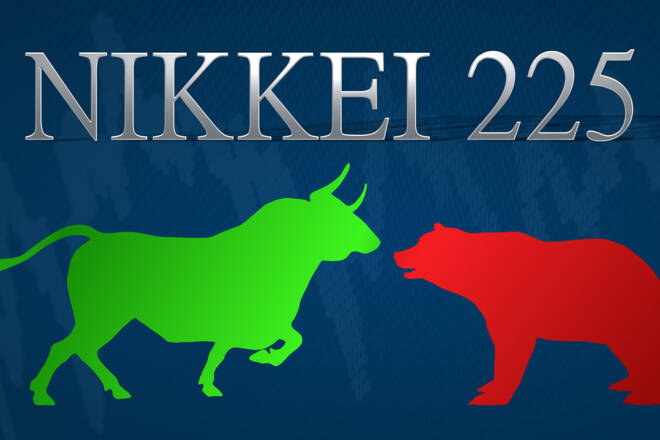Advertisement
Advertisement
Asia-Pacific Shares Rise as Japan’s Core Inflation Nears 8-Year High
By:
The jump in Japan's inflation highlights the dilemma the BOJ faces at it tries to underpin a weak economy by maintaining ultra-low interest rates.
The major Asia-Pacific stock markets posted solid gains on Tuesday as investors responded to news of a jump in Japan inflation and China’s decision to keep its loan prime rate on hold. The markets were also lifted by a rebound in the final hour of trading on Wall Street. Gains were limited, however, as investors looked ahead to the start of the Federal Reserve’s policy meeting on Tuesday.
In Japan, the Nikkei 225 Index settled at 27688.42, up 120.77 or +0.44%. Hong Kong’s Hang Seng Index rose 18781.42, up 215.45 or +1.16% and South Korea’s KOSPI Index finished at 2367.85, up 12.19 or +0.52%.
In Australia, the S&P/ASX 200 Index settled at 6806.40, up 86.5 or 1.29%. China’s Shanghai Index was also higher, closing at 3211.41, up 6.80 or +0.22%.
Japan’s Core Inflation Hits Near 8-Year High, Stays Above BOJ’s Target
The major overnight event comes out of Japan, where a government report showed Japan’s core consumer inflation surged to 2.8% in August, hitting its fastest annual pace in nearly eight years and exceeding the central bank’s 2% target for a fifth straight month as price pressure from raw materials and yen weakness broadened.
The strength of August inflation reinforced growing suspicions among economists that price pressure will last longer than the Bank of Japan (BOJ) has been expecting, though many still expect no immediate change to its ultra-easy policy.
Will the Surge in Core Inflation Prod the BOJ to Shift Policy?
The inflation data highlights the dilemma the BOJ faces as it tries to underpin a weak economy by maintaining ultra-low interest rates, which in turn are fueling an unwelcome slide in the Yen that pushes up import costs.
With inflation still modest compared with price rises seen in other major economies, the BOJ has pledged to keep interest rates ultra-low, remaining an outlier in a global wave of monetary policy tightening.
But traders are wondering how long the BOJ can maintain this ultra-dovish policy. At Thursday’s central bank policy meeting, investors will be focusing on whether BOJ Governor Haruhiko Kuroda will offer stronger warnings on the Yen’s sharp decline or tweak his view the recent cost-push inflation will be short-lived.
“Japan’s consumer inflation is perking up at a faster than expected pace, partly due to the weak Yen. It’s becoming hard for the BOJ to keep saying price rises will remain temporary,” said Mari Iwashita, chief market economist at Daiwa Securities.
Given today’s strong inflation report, the BOJ’s dovish stance will definitely be in the spotlight following the Fed’s interest rate decision on Wednesday.
For a look at all of today’s economic events, check out our economic calendar.
About the Author
James Hyerczykauthor
James Hyerczyk is a U.S. based seasoned technical analyst and educator with over 40 years of experience in market analysis and trading, specializing in chart patterns and price movement. He is the author of two books on technical analysis and has a background in both futures and stock markets.
Advertisement
